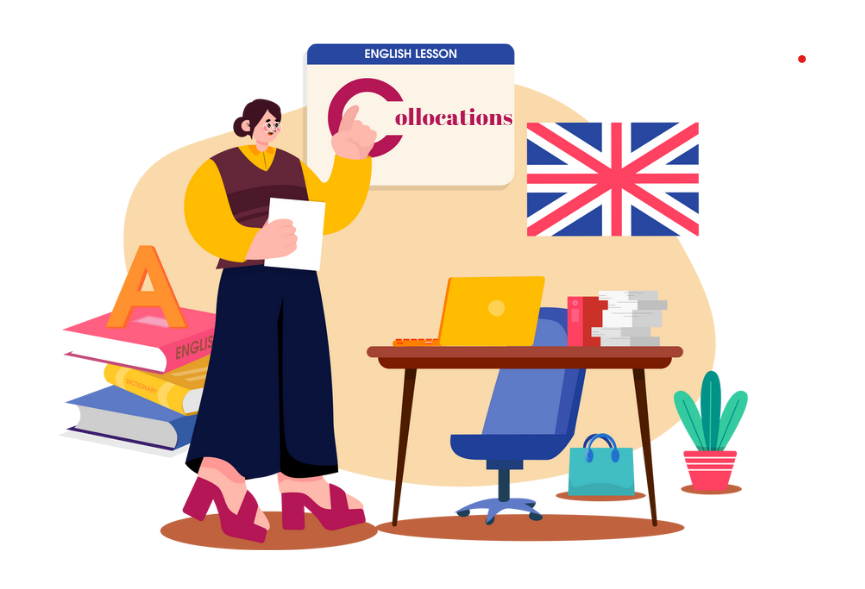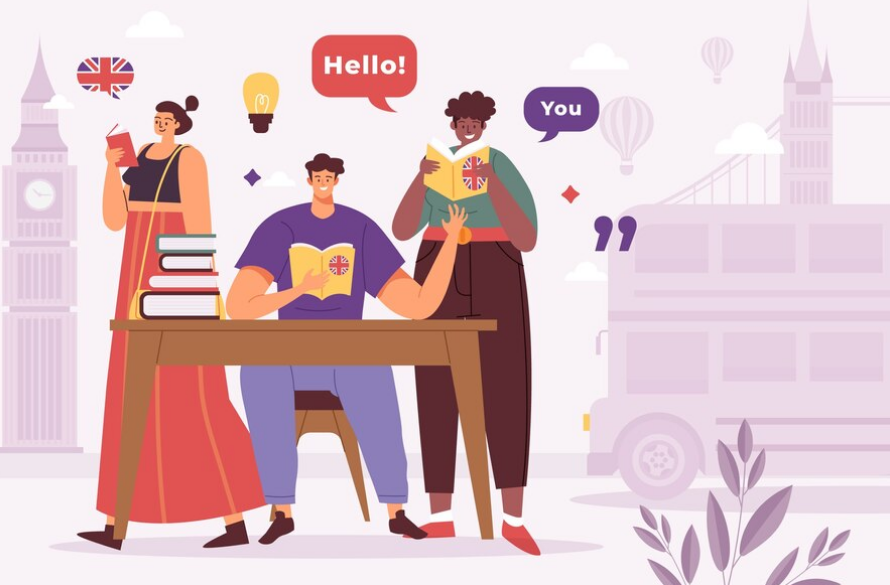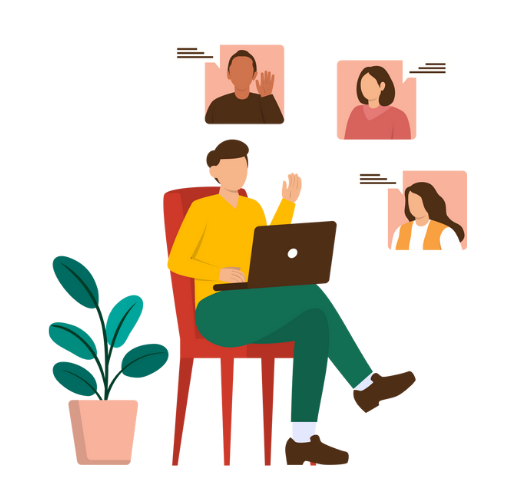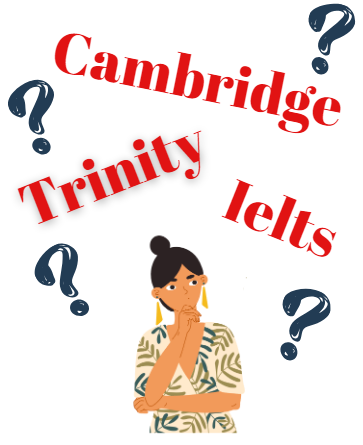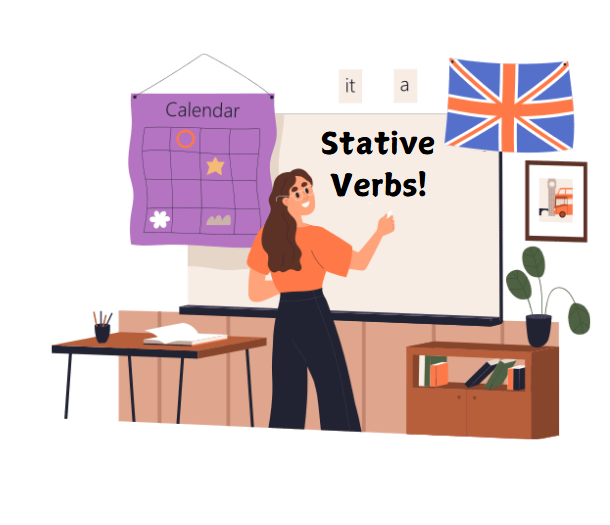Hello, I’m excited to introduce you to the topic of collocations, which are combinations of two or more words that naturally fit together when spoken or written.
What Are Collocations and Their Composition?
The term collocation has two definitions according to the Cambridge Dictionary. Firstly, it refers to words or phrases that naturally fit together when combined. Secondly, it’s defined as a combination of words that are frequently used together in a way that sounds natural.
For example, take the phrase fast food. The word fast is an adjective/adverb, while food is a noun. While fast has synonyms such as quick and speedy, saying quick food or speedy food sounds unnatural. Similarly, food can be replaced by words like sustenance or fare, but phrases like fast sustenance or fast fare also sound incorrect.
This is the essence of what a collocation is.
Collocations can be made from combinations of adverbs, adjectives, nouns, prepositions, and verbs. Why should you learn collocations? Keep reading to find out.
Importance of Collocations in English
Understanding and using collocations is essential because they help you sound more natural when speaking English. Knowing collocations also allows you to communicate more quickly because they act as ready-to-use word combinations in your mind. Instead of constructing a phrase from scratch, you can use a known collocation that fits the context, making communication more efficient.
For instance, when you need a specific phrase that includes a collocation, having it stored in your memory means you can speak fluently without having to think about how to form it, just like fitting puzzle pieces together.
Additionally, collocations enable speakers to sound more idiomatic. Proficient English speakers, both native and non-native, use them frequently, so they are valuable for improving your level of English.
Types of Collocations and Examples
There are various types of collocations in English, but here are five common types, along with examples:
1) Adverb + Adjective Collocations
- Deeply regret: He deeply regretted not studying for the exam.
- Strictly forbidden: It is strictly forbidden to park here without a permit.
- Utterly stupid: They felt utterly stupid after missing the last train home.
- Eternally grateful: We are eternally grateful for your generosity during our time of need.
- Perfectly clear: It was perfectly clear that the instructions were misunderstood.
- Deadly serious: I’m deadly serious about completing this project by Friday.
- Highly impressed: The manager was highly impressed with the team’s performance.
- Absolutely delighted: Sarah was absolutely delighted with her surprise birthday party.
- Reasonably priced: The hotel rooms were reasonably priced for the city centre.
- Fully aware: He was fully aware of the risks involved in the expedition.
2) Adjective + Noun Collocations
- Important thing: An important thing to keep in mind is to stay hydrated during exercise.
- Mixed feelings: She had mixed feelings about accepting the job offer in a different country.
- Key/main issue: The main issue at the meeting was the budget cut.
- Nasty habit: Chewing with your mouth open is a nasty habit.
- Common knowledge: It’s common knowledge that water freezes at 0°C.
- Absolute agony: He was in absolute agony after spraining his ankle during the hike.
- Soft spot: I have a soft spot for homemade cookies.
- Weak point: My weak point in the exam was the writing section.
- Steady job: He finally secured a steady job after months of searching.
- Excruciating pain: She felt excruciating pain after her surgery.
3) Noun + Noun Collocations
- Hand towel: He grabbed a hand towel to wipe up the spilled water.
- Travel expenses: The company covered all travel expenses for the business trip.
- Pang of nostalgia: She felt a pang of nostalgia while looking at old photographs.
- Sense of pride: Completing the marathon gave her a strong sense of pride.
- Board game: Playing a board game with friends is a fun way to spend the evening.
- Withdrawal symptom: He experienced withdrawal symptoms after quitting coffee.
- Round of applause: The speaker received a round of applause for his inspiring talk.
- Side effects: One of the side effects of the medication was drowsiness.
- Spice rack: The spice rack was neatly organized with jars labelled by name.
- Abuse of power: The politician was accused of abuse of power during his term.
4) Verb + Noun Collocations
- Break a promise: She didn’t want to break her promise to visit her friend.
- Have sympathy: I have sympathy for anyone going through a difficult time.
- Make progress: The team has made significant progress on the project.
- Catch a bus: He rushed to catch the bus to avoid being late for work.
- Break the news: She had to break the news about the cancelled event to her friends.
- Make an effort: We should all make an effort to reduce waste.
- Pay/give someone a compliment: He gave her a compliment on her presentation skills.
- Get the message: After the third reminder, he finally got the message and cleaned up his desk.
- Have a rest: After hours of walking, they decided to have a rest in the park.
- Go bankrupt: The company went bankrupt after a series of bad investments.
5) Verb + Preposition Collocations
- Rely on: She had to rely on her teammates to finish the group project.
- Refer to: The document referred to several case studies for context.
- Marvel at: Visitors often marvel at the beauty of the ancient cathedral.
- Glance at: He glanced at his watch and realized he was late.
- Specialise in: The doctor specialises in paediatric medicine.
- Worry about: Don’t worry about the weather; the event will be indoors.
- Dream about: Last night, I dreamt about visiting an island paradise.
- Deal with: She knows how to deal with stressful situations calmly.
- Suffer from: He suffers from chronic back pain after an old injury.
- Associate with: The charity does not want to associate with any political group.
In conclusion, mastering collocations not only enhances your fluency but also allows you to communicate more naturally and confidently, making your English sound more like that of a native speaker.


